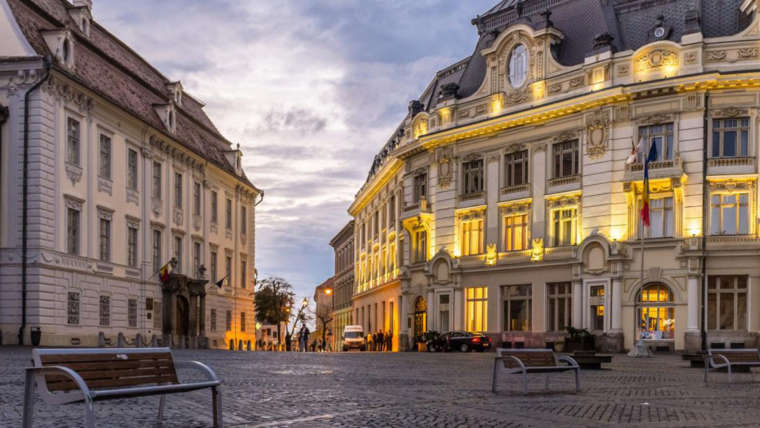Romania is a country of considerable natural beauty, with numerous attractions for the visitor. It has seen significant economic growth in the last two decades, spurred on by EU accession in 2007. Although the economy was affected by the global economic downturn from 2008, it has now returned to growth and is performing better than many other countries in the region.
Passports, Visas and Residence Permits
Romanian visas are not required for nationals of EU/EEA countries, Switzerland, Canada, Japan and the USA. Romanian short-stay entry visas are also not required for nationals of Argentina, Australia, the Bahamas, Barbados, Brazil, Brunei, Chile, Costa Rica, El Salvador, Guatemala, Honduras, Hong Kong Special Economic Zone, Israel, Macao Special Economic Zone, Malaysia, Mauritius, Mexico, Nicaragua, New Zealand, Panama, Paraguay, San Marino, Seychelles, Singapore, South Korea, Tonga, Trinidad Tobago, Uruguay, Vanuatu and Venezuela, all of whom may stay in the country up to 90 days within a six month period without the need to obtain any official permission. However, a Romanian long-stay visa and a residence document are mandatory for stays of longer than 90 days.
Holders of valid Schengen visas for short or long term stays are granted visa free entry to Romania (i.e. no Romanian short-term entry visa is required), under certain conditions.
Nationals of countries considered by the Romanian authorities to present a high immigration risk are subject to strict visa requirements and they must follow a special procedure to obtain a visa prior to their arrival. This procedure involves obtaining an invitation approval from the Romanian immigration authorities. Visas are obtained based on this invitation approval requested by a Romanian individual or company. Exceptions apply to certain categories, as provided by law. A bank deposit guarantee may also be needed, although there are some exemptions from this requirement.
Non-EU/EEA/Swiss individuals who come to Romania for work purposes or want to stay longer than 90 days within a six month period must apply for a Romanian residence permit. This is a document issued by the Romanian General Inspectorate for Immigration and is generally renewed on a yearly basis. A number of documents must be provided to secure the permits, the most important of which are evidence of employment in Romania (a work permit is required in nearly all cases), evidence of contribution to the Romanian state health system, medical certificate (most good private clinics will arrange the medical examination) evidence of accommodation in Romania (ownership documents or a rent contract), a copy of the passport used to enter the country, and at least two passport sized photographs. The residence permit is issued within one month, although the passport is not retained during this period. Extensions of residence permits must be applied for at least 30 days prior to the expiry date of the old one, otherwise a fine is payable. Fees are subject to change, and the laws governing residency are altered frequently.
Highly-skilled employees will obtain an EU Blue Card, which is a special type of residence permit for employment purposes issued to highly-skilled qualified non-EU/EEA/Swiss local hires. Proofs of high-skills / qualifications are mandatory. This type of residence document grants the right to reside and be employed in Romania in a highly-skilled position, is generally issued for up to two years validity (depending on the validity of the employment contract), and is renewable. After an 18-month legal stay, the EU Blue Card holder can move to another EU Member State to occupy a highly-skilled position.
For EU/EEA/Swiss nationals, five year registration certificates are issued, on production of an employment contract or evidence of means of support, as well as proof of social health insurance (a European health card is acceptable in most cases).
Geography and Population
Geographical Location
Romania is situated in South-East Central Europe, to the north of the Balkan Peninsula, on the Lower Danube, bordered in the southeast by the Black Sea. The country is crossed by the parallel of 45° F latitude north and by the meridian of 25° longitude east, and is located midway between the North Pole and the Equator, and midway between Europe’s Western and Eastern extremities.
Neighbours
Romania is bordered by the Black Sea to the southeast, Bulgaria to the south, Serbia to the southwest, Hungary to the west and Ukraine and the Republic of Moldova to the north and east.
Population
The Romanian population is 19,599,506, of which 88.6% are of ethnic Romanian origin. There is a significant ethnic Hungarian minority, mainly located in the Western province of Transylvania, representing 6.5% of the total national population, a Roma population of 3.2% and a small percentage of other ethnic groups (2011 census figures).
Official Language
The official language, spoken by the majority of the population, is Romanian. It is the language taught in schools and spoken in national institutions. TheRomanian language is derived from the Latin used in ancient times in the Roman provinces of Dacia and Moesia. It has a 31-letter Latin alphabet and is very similar to French, Italian and Spanish, with some Slavic influences. Hungarian is also used, mostly in the north-eastern part of the country. Other languages are also spoken by small numbers.
Area
Romania covers about 238,391 square kilometers of land, which makes it a medium sized European country. It is approximately the same size as England and it ranks 13th in size in Europe.
National Day
1 December (the anniversary of the Great Assembly held at Alba Iulia in 1918, which brought about the union of all Romanians into a single state).
Legal Holidays
1 and 2 January – New Year; Easter Monday (Orthodox);
1 May- May Day;
The Monday after Pentecost (normally 7 weeks after Orthodox Easter);
15 August -Dormition of the Virgin Mary;
30 November – St. Andrew;
1 December – National Day of Romania;
25 and 26 December – Christmas.
Religion
Nearly all the population is Christian according to the 2011 census, of which a large majority is Orthodox (85.9%). 4.6% are Catholic. Around 6% belong to various Protestant denominations, the most important of which is the Hungarian Reformed Church (3.2%). Romania has a small number of Muslims (0.3%) and a Jewish community of around 6000.
National Currency
The national currency is the Leu (pl. Lei) with the subdivision Ban (pl. Bani). In economic and business circles the currency is generally referred to as the RON (New Leu) to distinguish from the ROL (Old Leu) which functioned until July 2005 (when four zeroes were eliminated from the old currency).


